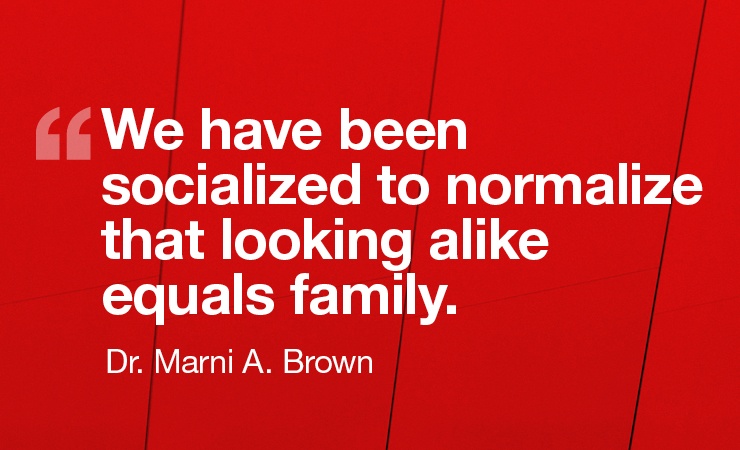The Importance of Cultural and Social Awareness in Building LGBTQI Families
I have been putting together this blog post amid two tremendous crises in the United States: the pandemic, which has exposed how fragile the economy and health care system are, and another set of vicious, racially violent acts. As I work through these two heart-wrenching experiences, I find myself thinking about where I fit in all of this.
I identify as a white, cis-gender lesbian. I have been married to my partner, who is also white, for 10 years and we have two beautiful children, also white. When we began building our family, almost nine years ago, we chose sperm from donors that we thought looked like us. At the time I did not think much about what our selection meant, but I remember, since my wife carried the kids, that I hoped in some way they would resemble me; that when out in public people would know that they were my children.

Please know, I love my family with the entirety of my heart and soul, but I also can’t ignore that how we made our family could be problematic to some degree. You see, I am also a sociologist that studies and observes gay and lesbian communities. In addition to my studies, I teach a variety of sociology and human development courses at a four-year state college. In one of the courses, “Sociology of Family,” we spend a great deal of time reading scholarship on the way gay and lesbian families get formed. We discuss that there is no one way for a family to be built, and how families do get constructed reflects other social issues and often inequities.
One of our main areas of study has reflected the way some lesbians choose sperm and the racial and ethnic complications associated with these decisions. This is a very interesting conversation to have with college students, some already parents, others not wanting to parent at all, and some just completely unaware of all the reproductive technologies that have changed and impacted the ways one can form a family (for example, IVF and even surrogacy). I usually share my story as to how I became and parent, and often find many students curious and sometimes even blown away by all the different parenthood options.
We also read an article titled “Race Matters in Lesbian Donor Insemination: whiteness and heteronormativity as a co-constituted narrative” (Ryan and Moras 2017). In my current class, we spent a great deal of time talking about what parents want in their children. Some students shared their parenthood stories while others listened intently with questions and comments. Many students commented on the ways looking alike or race and other physical features matter in the visibility of family. I observed many of the students connecting the class conversation to what Maura Ryan and Amanda Moras describe as a process that white women engage in when choosing sperm, the “look like me practice.” After reading this and listening to the students, I found myself pondering, “Why does race matter in this selection process and why do lesbians, in general, want their offspring to look like them? Is the desire for our children to look like us actuality a cover-up for racially driven decisions that perpetuate inequality in already marginalized communities?”
There is no one answer to these questions; forming a family is complicated, but why are so many of us driven to want to look alike or ensure biological relatedness? We know that biological connections have always mattered in the United States. We favor these kinds of families and perpetuate its importance with expressions like, “you have your mom’s eyes or your dad’s nose.” We have been socialized to trust what we see and normalize that looking alike equals family. Therefore, if kids don’t look like or suggest biological relationships to their parents, we often question, in a microaggressive sort of way, is this a real family?
So, for me, the question is how can how gay and lesbian formed families include important discussions of race and ethnicity? How can we, as an already marginalized group, engage in more racially equitable practices? I don’t have the answers, but talking about it, dialogue, and scholarship are critical. But just as important are the conversations we need to have in the LGBTQI community about race and ethnicity, with the goal being to build more racially just families and communities.
Reference
Ryan, M., and Moras A. 2017. Race Matters in Lesbian Donor Insemination: whiteness and heteronormativity as co-constituted narratives. Ethnic and Racial Studies 40: 4 p. 579-596
































































































I will assign this reading to my Social Work students to ponder the questions raised.